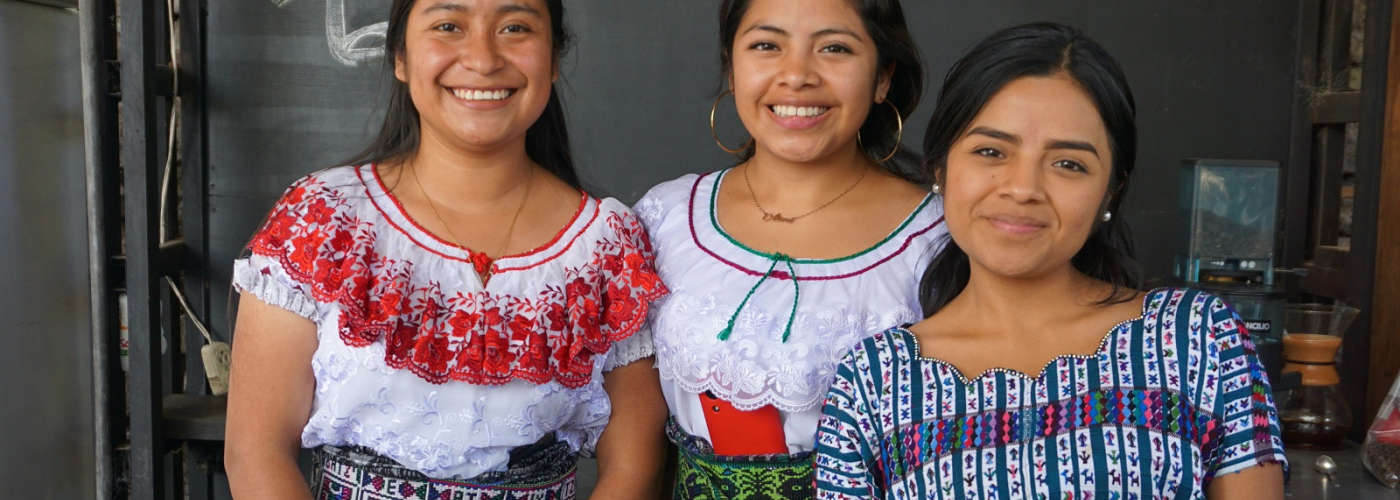Localization of the Cooperative Development Program in Guatemala: Bringing Young Voices to the Table to Find Alternatives to Migration in Coffee Communities
Image

Since 1986, Equal Exchange has been partnering with cooperatives around the world through inclusive supply chains, offering better trade conditions and improved pricing all while building long-term relationships. It is through these relationships that the opportunity arose to dig deeper into the challenges these communities face to facilitate solutions that are designed and led by cooperatives in each unique context through the Cooperative Development Program, funded by USAID.
In Guatemala, 59% of Guatemalans live below the poverty line. The lack of opportunities, including jobs and education, combined with corruption and insecurity are some of the main drivers that are pushing Guatemalans to migrate north to the United States at record levels. We have partnered with the cooperative Manos Campesinas, which brings together 1200 members organized in eight base-level organizations located in the Departments of San Marcos, Quetzaltenango, Retalhuleu, and Solola. Manos Campesinas seeks to satisfy the needs of its members by offering better market alternatives and by giving them marketing support. In addition, they provide technical assistance in the field to increase the quantity and quality of the coffee harvest. Today, the organization also provides technical support to help the farmers diversify their products, convert to organic production, improve the administration of the cooperatives, and promote women's participation.
To respond to the urgent needs of the community, to better understand the dynamics that young people face, and to identify opportunities for youth to participate, our team carried out a diagnostic with representatives from Manos Campesinas. Through this process, our objective was to create a youth inclusion policy together with the organization to identify barriers for youth and to better understand the interests of the youth in their communities and how they might connect to Manos Campesinas. One of the weaknesses identified was precisely the advanced age of their membership, which presents a risk to the sustainability of the organization. Similarly, farmers express a lack of manual labor in their communities because so many young people are migrating north, which increases costs, and decreases quality and production.
We also wanted to look beyond coffee production, as limited access to land is a serious constraint for young farmers, and also consider activities to diversify income and become less dependent on coffee, when often needs are not being met. Maybe young people don’t necessarily want to grow coffee, so what other alternatives exist? Manos Campesinas, both management and the board, is committed to supporting these alternatives for children of their members, and are aware of the serious internal need to provide opportunities.
As a result, we have begun supporting four proposed projects that will be implemented by Manos Campesinas through the Cooperative Development Project. These projects include an organic compost production facility, two chicken coops to raise hens and produce eggs, and an ecotourism initiative along the beautiful shores of Lake Atitlan. This model, designed by young entrepreneurs at Manos Campesinas, represents a shift from traditional development models, where development professionals take the time to listen and understand the local dynamics, allow a space to facilitate ideas and proposals to solve their own challenges, and are backed by the local cooperative. The Equal Exchange field staff supports the implementation of these activities and ensures compliance with USAID rules and regulations.
During a recent field visit, Maria Lucia Navichoc Ixtetela from the organization Adenisa in San Pedro La Laguna has been hired as a local promoter with the technical team, as the first woman to have a position like this. Together with a group of peers, she launched a tourism initiative and offer organic coffee tours of the nearby farms, processing facilities, and a newly inaugurated café. This group of indigenous Tz'utujil kids started offering tours without any outside support, and have been building their skills, internal protocols, identifying prices, and honing their barista skills to offer the best services to tourists. In fact, they were organized and started offering tours several months before they received any outside support.
They have a sense of pride in the work they are carrying out, which would happen with or without the economic resources. The culturally relevant training, together with a modest outside investment, and encouragement from the cooperative give them the motivation needed to continue to stay in their communities and contribute positively to the economic development of their cooperative.
This model of localization makes this work more effective and equitable, where local communities have more buy-in and ownership over the direction of these projects. We are intentional in our efforts to bring young, indigenous women like Lucia to the table to listen, to hear their hopes and dreams, and to harness their power to implement these initiatives with the help of a supportive team. We want to demonstrate through successful actions that these alternatives are possible. It requires saying “yes” more, it requires humility and flexibility and being open to ideas other than our own, and in doing so, we can start to shift the power dynamics.
According to a white paper recently published by the Council of International Development Companies, “The impetus for locally-led development reflects a desire to support local institutions in the most effective manner and to effect a fundamental power shift that nurtures sustainability; prioritizes the perspectives and preferences of recipient governments, local civil society organizations and host country professionals; reflects current ethical sensibilities, and incorporates the voices of vulnerable groups.”
This post comes from an implementer of the Cooperative Development Program under USAID’s DDI LFT Bureau.

